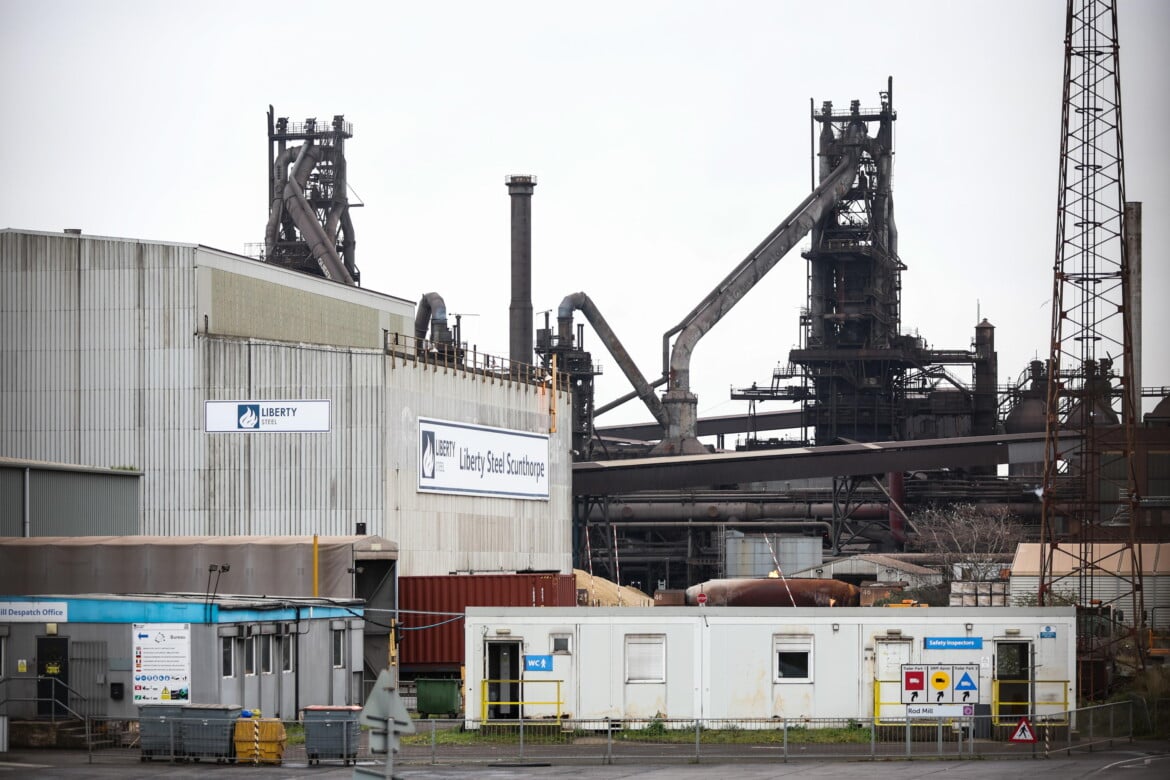Analysis
Nationalizing industry? Starmer and Labour save British Steel and thousands of jobs
Just a decade ago, the Starmer government's move would have been an unthinkable heresy. But now that the dirges of neoliberalism and globalization are being sung on a weekly basis, it is becoming basic common sense.

It’s time to “take back control,” but of the steel industry. And with not a moment to waste, to save the 3,000 or so jobs at the last remaining blast furnace in the U.K., the British Steel plant in Scunthorpe, Lincolnshire, currently owned by a Chinese group, Jingye, which is incurring losses of £200 to £250 million a year and wants to get rid of it.
In the midst of the Easter recess, on Saturday, the government reconvened the House of Commons for a rush vote on emergency legal powers in preparation for nationalizing the domestic steel industry, which had been limping along in private hands for 40 years. The bill passed comfortably, given Labour's overwhelming majority, and is now set to be debated in the Lords. To keep the blast furnaces lit (since shutting them down might make it impossible to start them again for technological reasons), the Chinese company will receive £700 million in public funds, although it is extremely unlikely it will be able to regain control of the plant, marking nationalization virtually guaranteed further on unless another buyer comes forward. There was no real opposition to the bill, with enthusiastic support from Farage’s Reform UK populists, with Kemi Badenoch's Tories reduced to idle chatter and Ed Davey's Lib Dems just as supportive.
Prime Minister Starmer met near the plant with the workers’ representatives, commending them for being “the backbone of British Steel.”
The state’s intervention “is not a magic wand or a panacea,” said Business Secretary Jonathan Reynolds on the Commons floor shortly before Starmer’s meeting. “The state cannot fund the long term transformation of British Steel itself, nor would it want to do so.” But the state also knows that it cannot afford to close the only blast furnace capable of producing “noble” primary (i.e. not recycled) steel. And this operation, more sovereignist than socialist, will come with a high burden. Britain has some of the highest energy costs in the “developed” world (74% higher than the U.S., 32% higher than France), which collectively account for 20% to 40% of the total cost of production at the plant.
The British steel industry has been slowly hollowed out for profit since the end of World War II. Nationalized in 1967 by Harold Wilson, privatized in 1988 by Thatcher, in full deindustrializing frenzy, it has seen its workforce shrink from 310,000 workers in 1971 to just 10,000 in 2019. In the last decade alone, British Steel Limited has gone from the hands of India's Tata Steel Europe to the Klesch Group and then to the Greybull Capital fund (which specializes in picking up distressed companies, cutting costs and reselling them at a profit) at the cost of one pound, with substantial wage and pension cuts, only to be kept afloat by the Theresa May-led Tories before being acquired by Jingye in 2020.
Just a decade ago, the Starmer government's move would have been an unthinkable heresy. But now that the dirges of neoliberalism and globalization are being sung on a weekly basis, and with protectionism making an overwhelming return to center stage overseas, it is becoming basic common sense. In times of forced repatriation of production and consumption, tariff sclerosis and a breathless race to rearm in a geopolitical-economic context of everyone for himself, having a single Chinese-owned steel plant is almost worse than having none at all. So, all hail the thawing of nationalization, all the more so now that the government is no longer subject to the EU's free-trade constraints and even gets the opportunity to give the impression that it cares about the fate of the workers.
Originally published at https://ilmanifesto.it/per-salvare-lacciaio-starmer-nazionalizza-lultimo-altoforno-britannico on 2025-04-13
